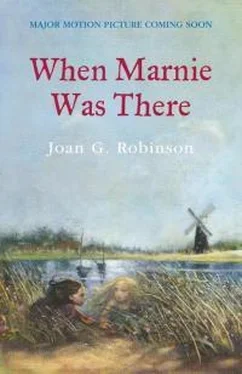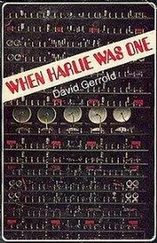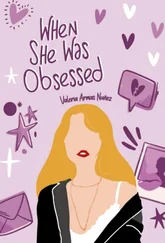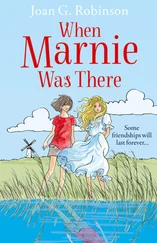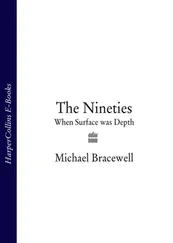Джоан Робинсон - When Marnie Was There
Здесь есть возможность читать онлайн «Джоан Робинсон - When Marnie Was There» — ознакомительный отрывок электронной книги совершенно бесплатно, а после прочтения отрывка купить полную версию. В некоторых случаях можно слушать аудио, скачать через торрент в формате fb2 и присутствует краткое содержание. Год выпуска: 2014, Издательство: HarperCollins Publishers, Жанр: Старинная литература, на английском языке. Описание произведения, (предисловие) а так же отзывы посетителей доступны на портале библиотеки ЛибКат.
- Название:When Marnie Was There
- Автор:
- Издательство:HarperCollins Publishers
- Жанр:
- Год:2014
- ISBN:нет данных
- Рейтинг книги:5 / 5. Голосов: 1
-
Избранное:Добавить в избранное
- Отзывы:
-
Ваша оценка:
- 100
- 1
- 2
- 3
- 4
- 5
When Marnie Was There: краткое содержание, описание и аннотация
Предлагаем к чтению аннотацию, описание, краткое содержание или предисловие (зависит от того, что написал сам автор книги «When Marnie Was There»). Если вы не нашли необходимую информацию о книге — напишите в комментариях, мы постараемся отыскать её.
When Marnie Was There — читать онлайн ознакомительный отрывок
Ниже представлен текст книги, разбитый по страницам. Система сохранения места последней прочитанной страницы, позволяет с удобством читать онлайн бесплатно книгу «When Marnie Was There», без необходимости каждый раз заново искать на чём Вы остановились. Поставьте закладку, и сможете в любой момент перейти на страницу, на которой закончили чтение.
Интервал:
Закладка:
“Marnie adored that baby!” Gillie was saying. “You see, she had the looking after of her, right from when the first marriage broke up, so she was almost more hers than Esmé’s. I think Marnie thought of the baby as her second chance. She was determined to make a good job of bringing her up.”
“And did she?” asked Jane and Scilla eagerly.
“She didn’t have her second chance after all,” Gillie said quietly. “She never got over the shock of Esmé and her husband being killed. She was very ill after that, and she died later the same year. I was abroad when it happened so I’d lost touch. I wrote to the Northumberland address but never had a reply. And when I came back to Barnham I asked around, but of course nobody knew anything about the family by then, they’d left so long ago. There were strangers living in this house—” she broke off. Scilla sniffed. “Don’t be too sad about it, my dears. It all happened a long time ago.”
“How long?” asked Mrs Lindsay quickly.
“Six or seven years, I suppose,” said Gillie, counting on her fingers.
“But what happened to the poor little girl?” asked Jane. “I hate a story without a proper ending.”
There was a sudden movement behind Anna. She turned and saw Mrs Lindsay sitting bolt upright in her chair. Her eyes were shining and she was actually smiling.
“Let me finish the story,” she said, her voice quite shaking with excitement. “Yes, I can, though I didn’t know I could until just now!” And she laughed at the surprised faces turned suddenly towards her.
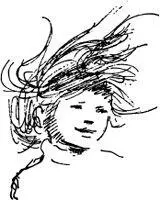
Chapter Thirty-Six
T
HE
E
ND OF THE
S
TORY
“THE END OF the story went like this,” said Mrs Lindsay. “When her granny couldn’t look after her any more, the little girl was sent away to a children’s home. She was about three then. And a few years later a couple found her there. The woman had always wanted a daughter, because she hadn’t one of her own, so they took Marianna back to their own home to live with them.”
“Oh, I’m so glad!” sighed Jane.
Mrs Lindsay went on quickly, as if she were afraid of being interrupted. “The woman loved her very much. She wanted her to call her ‘mother’, but for some reason Marianna never would. So she called her ‘auntie’ instead.” Anna looked up, suddenly holding her breath. “And because the woman wanted so much to feel that the little girl was her own, she changed her name. At least, she didn’t change it. She just used the last half.”
There was a moment’s silence, then Scilla burst out, “Anna! Mari-anna!”
“Do you mean it’s me ?”Anna said. “ Me ?”
“Yes, you,” said Mrs Lindsay. “Are you pleased? Oh, Anna, I’m so glad! I think it’s the loveliest ending to a story I ever heard – although I told it myself!”
She kissed Anna on the back of her head, and whispered in her ear, “So you see, the anchor did belong to you after all!”
Anna, feeling quite dazed, buried her head in Mrs Lindsay’s lap for a moment. It was some minutes before they could all get over their surprise. Then everyone started asking questions at once. How had Mrs Lindsay known? And why hadn’t she said so before? Why hadn’t anyone told Anna that her granny used to live in The Marsh House? Didn’t that make it almost more her house than theirs?
Mrs Lindsay agreed that it did although, of course, it did now belong to the Lindsays since they had bought it. But it certainly belonged to Anna’s background more than to theirs.
Gradually the details came out. Mrs Lindsay had known no more than any of them, until that same afternoon when Mrs Preston had told her all she knew about Anna’s background. Even then she had no idea there could be any connection between Anna and the story of Marnie; not until Gillie had mentioned the car crash. After that it had all pieced together.
Mrs Preston had told her how she used to live near Little Overton herself, and how, years later, when she had been visiting the children’s home, she had learned that the grandmother of the little girl she was interested in, had once lived there too. It had only come out by chance because the matron of the home had found a picture postcard of Little Overton among the child’s possessions. It had been from her granny and had said on the back: This is a picture of the house where I used to live when I was a little girl.
Anna gave a little shiver of excitement. “I’m not saying anything your auntie didn’t want me to say, you know,” said Mrs Lindsay. “She asked me to tell you all this, and I was going to as soon as I had a chance.”
“I know, she told me. Where’s the postcard now?”
Mrs Lindsay explained that it had disappeared long since, even before Mr and Mrs Preston had come along. The matron had said the little Marianna wouldn’t be parted from it and so it had eventually fallen to pieces. Anna looked disappointed, and Scilla said “O-oh,” just as her mother had done earlier in the evening.
Mrs Preston had asked the Peggs once if they’d ever known a woman living on her own in the village with a three-year-old granddaughter, but they hadn’t been able to think of anyone. And after all, it had said “when I was a little girl” – so Mrs Preston had put it in the back of her mind and tried to forget about it.
Andrew, arriving back in the middle of all this, was as excited as any of them. “But we haven’t any proof ,” he said. “We can’t be sure it was this house.”
But there was another thing, Mrs Lindsay said. When Mrs Preston had come into the drawing-room, she had been astonished at the view. She hadn’t realised the house was so near the water – having come by the road. Then later, when she was talking about the postcard, she said the matron had mentioned it was a big house by a lake. It hadn’t struck Mrs Lindsay at the time that it could have been The Marsh House, photographed from the other side of the creek. She had thought she meant a big house somewhere inland, standing in its own grounds with a park. But just as Mrs Preston was leaving, she’d asked Mrs Lindsay whether she thought people ever had sailing boats on their own lakes. Mrs Lindsay had thought it rather a strange question, and asked why. Then Mrs Preston said the matron had mentioned a sailing boat in the picture as well. And she said something like, “I suppose it might have been one of the houses along here, mightn’t it?”
“She had to hurry away then,” said Mrs Lindsay, “so we had no more time to talk about it. But—”
“But there aren’t any other houses along here,” said Andrew. “Only the cottages.”
“Exactly,” said Mrs Lindsay.
They talked about it for hours. Gillie said Anna’s grandmother must have told her many stories when she was little – “She was always a great talker!” she said – and she began wondering whether it was possible she could have told her the story about the beggar girl at some time; – it had been so odd Anna suddenly remembering about the sea lavender.
“But Anna was so little then,” Mrs Lindsay said, and Gillie agreed.
But when Anna – struggling to find the right words – told them what she had never told anyone before – how The Marsh House had looked so familiar, like an old friend, even when she had first seen it, Gillie said, “Yes. Yes, of course. It would.” If Anna had gazed at it long enough, (until it fell to pieces, in fact!) the picture would have remained in the back of her mind even after she had forgotten it. It was the same in painting, she said. You never forgot the places you painted out of doors, because you’d looked at them for so long that they seemed to become part of you.
Читать дальшеИнтервал:
Закладка:
Похожие книги на «When Marnie Was There»
Представляем Вашему вниманию похожие книги на «When Marnie Was There» списком для выбора. Мы отобрали схожую по названию и смыслу литературу в надежде предоставить читателям больше вариантов отыскать новые, интересные, ещё непрочитанные произведения.
Обсуждение, отзывы о книге «When Marnie Was There» и просто собственные мнения читателей. Оставьте ваши комментарии, напишите, что Вы думаете о произведении, его смысле или главных героях. Укажите что конкретно понравилось, а что нет, и почему Вы так считаете.
